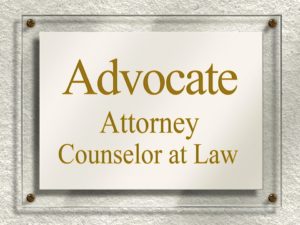According to the conventional wisdom, any statement made to an attorney is protected from all forms of disclosure. However, this is not the case. The so-called attorney-client privilege applies in a fairly narrow set of circumstances. Knowing what the attorney-client privilege does and does not encompass is critical to success in litigation, as the decision to protect certain statements from disclosure can mean the difference between winning and losing a case.
What it is:
The attorney-client privilege applies to certain confidential communications between a client and a lawyer that are made in the course and scope of the attorney’s representation of the client. When a communication falls within the protections of the attorney-client privilege, it is shielded from disclosure to opposing parties, admissions in a court of law, or other forms of public exposure.
North Carolina has adopted a five-part test for determining whether a communication triggers the protections of the attorney-client privilege.
- The attorney-client relationship exists at the time the communication is made.
It is not enough that a statement is made to a lawyer. For instance, a conversation with a lawyer at a cocktail party is not protected. Also, statements made to an attorney before the attorney is formally retained are not privileged. The communication must be made after the attorney-client relationship has already been formed.
- The communication is made in confidence.
With a few narrow exceptions, communications made in the presence of third parties are not protected. This is why your attorney may ask to speak to you in private at your initial consultation if you bring a family member with you. Also, if you are meeting with your attorney at a crowded coffee house, your statements will not be protected if someone overhears them.
- The communication relates to the matter for which the attorney was professionally consulted.
Asking your divorce lawyer a question about your taxes will likely not result in privileged communications. Typically, the privilege will only attach if you are formally and professionally asking your lawyer for legal advice or discussing strategy for a case. Mere casual conversation or brainstorming with your lawyer about a broad swath of legal issues will not be sufficient for the privilege to attach.
- The communication is made in the course of giving or seeking legal advice for a proper purpose.
North Carolina law has allowed an exception to the attorney-client privilege. Known as the “crime fraud exception,” it protects attorneys whose clients seek the advice of counsel for an improper or illegal purpose. Such communications will not be protected.
- The client has not waived the privilege.
It is critical to realize that you can destroy privilege by telling someone other than your attorney about the substance of your conversations. This applies whether the third party is a family member, colleague, business partner, or even the Court.
Because the attorney-client privilege provides such a narrow and fragile protection, it is best to proceed with caution when discussing sensitive matters with your attorney. Be sure to consult with your attorney in private, and follow his or her direction regarding disclosure.
This article does not create an attorney-client relationship and should not be construed as legal advice.






Comments are closed.